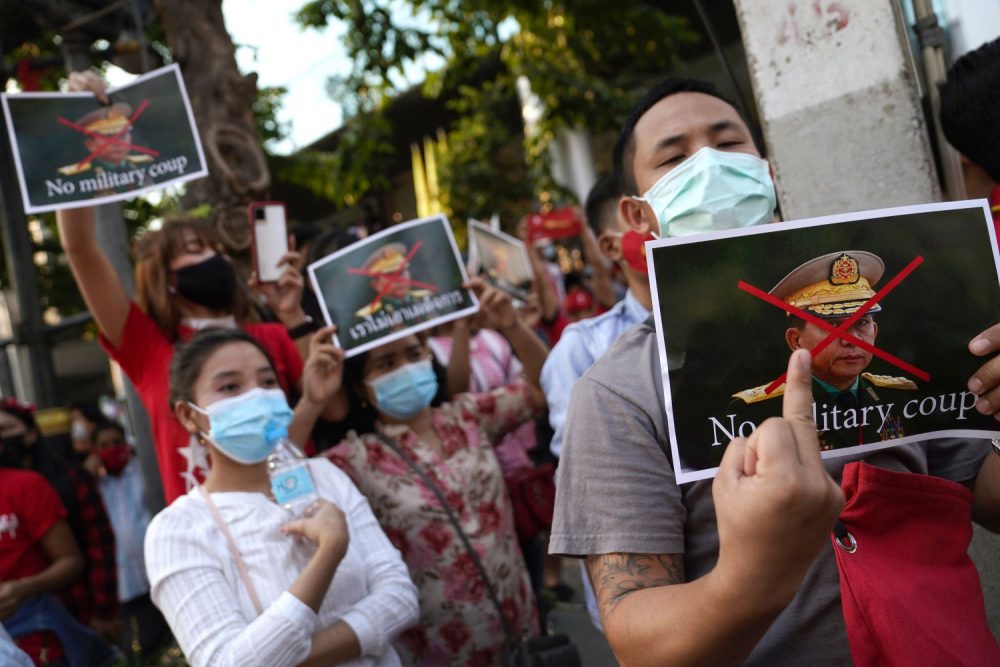US President Joe Biden threatened to reimpose sanctions on Myanmar following a coup by the country’s military leaders, as services returned to near-normal on Tuesday after internet and telephone links were restored after being suspended.
Biden condemned the military’s takeover from the civilian-led government and its detention of elected leader and Nobel laureate Aung San Suu Kyi as “a direct assault on the country’s transition to democracy and the rule of law.”
“For almost a decade, the people of Burma have been steadily working to establish elections, civilian governance and the peaceful transfer of power,” Biden said in a statement, referring to Myanmar by its previous official name. “That progress should be respected.”
Aung San Suu Kyi’s National League for Democracy party won a landslide 83% in a November 8 election that the army described as fraudulent.
The crisis in Myanmar marks a first major test of Biden’s pledge to collaborate more with allies on international challenges, especially on China’s rising influence. That stance contrasts with former president Donald Trump’s often go-it-alone approach.
“We will work with our partners throughout the region and the world to support the restoration of democracy and the rule of law, as well as to hold accountable those responsible for overturning Burma’s democratic transition,” Biden said.
He called on the military in Myanmar to lift all restrictions on telecommunications and to refrain from violence against civilians.
US Leverage Limited
Analysts cautioned that Washington’s leverage was limited. Sanctions “are unlikely to have much immediate impact on the generals”, given that few of them had any intention of travelling to or doing business in the US, said Greg Poling at Washington’s Center for Strategic and International Studies.
White House spokeswoman Jen Psaki told briefing Washington had had “intensive” conversations with allies. She declined to say what other actions were under consideration aside from sanctions.
Human rights advocates were appalled at the coup. “Myanmar’s new military junta should immediately and unconditionally release all detainees, rescind the state of emergency and recognise the duly elected parliament,” Brad Adams, Asia director at Human Rights Watch, said.
Myanmar banks in the commercial hub of Yangon reopened on Tuesday after halting financial services a day earlier due to poor internet connections.
Companies which had begun operations in Myanmar since its return to democracy began in 2012 remained unsure of their future.
At least 164 foreign and multinational firms have offices or operations in the south-east Asian country.
Australia’s Woodside Petroleum said it is working to understand how its exploration drilling plan for offshore Myanmar this year might be affected after the military seized power.
However, analysts said the developments would create few economic ripples. “The coup in Myanmar isn’t going to excite financial markets,” said Charles Robertson, global chief economist at Renaissance Capital.
• Reuters with additional editing by George Russell
This report was updated on Dec 23, 2021 for style purposes.
ALSO SEE:
Foreign Companies Rush to Assess Fallout in Myanmar After Coup
China hits back against US criticism of its Mekong River policies
























